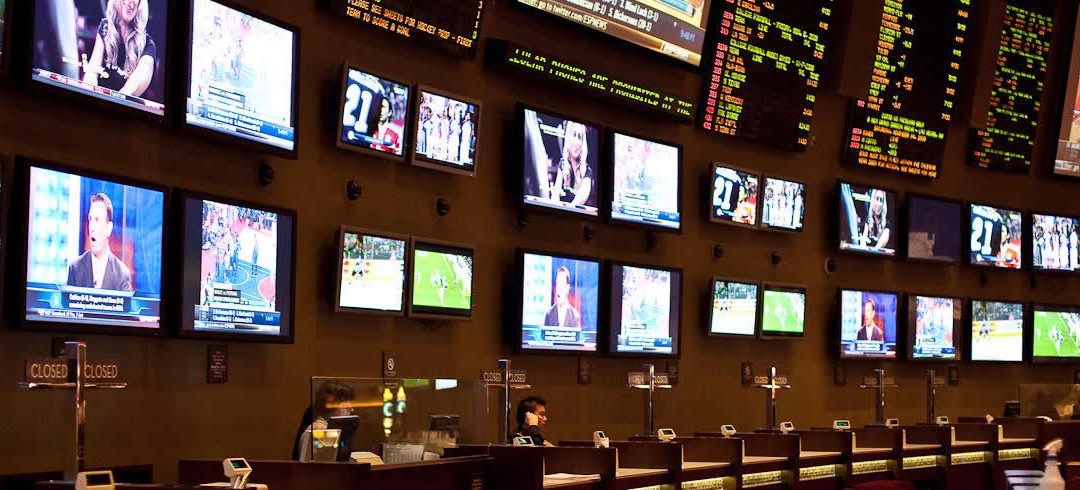- Connecticut has two bills in the Public Safety and Security Committee discussing sports betting.
- Legalizing sports betting in Connecticut could bring in over $15 million in tax revenue.
- The state’s current tribal compact gives the two tribal casinos exclusive gaming rights.
HARTFORD, Conn. – After the public hearing was held Tuesday to discuss the possibilities of legalizing sports betting in the state, only one thing is for sure – there are many viewpoints on the matter.
Fortunately, legislators do agree with each other that no bill will advance through legislation without an agreement between the state, spearheaded by Governor Ned Lamont, and the Mashantucket Pequot and Mohegan tribes, who have sole rights to casino gaming in the state. If an agreement is reached, the Bureau of Indiana Affairs would have to add in an additional approval.
Many legislators believe that any plan to introduce sports betting would fall into the hands of the two tribes, while others are taking a staunch stance that this form of gaming wasn’t permitted in the tribal compact and other operators should have the possibility of accepting wagers.
Keeping The Status Quo
Possibly the most outspoken on the matter is Senator Cathy Osten (D- Sprague), who sponsored Senate Bill 17, which would permit sports betting to occur both at the tribal casinos’ locations and through an online platform, operated by the tribes. Any change in the state’s stance on gaming could alter future negotiations and current relationships and that is a risk she does not want.
Ray Pineault, President and General Manager of Mohegan Sun, agreed, saying “It is our belief that we cannot do anything that puts these agreements in jeopardy.”
The current deal has 25% of the slot machine revenue being contributed to the state. Rodney Butler, Chairman for Mashantucket Pequot, stood by his belief that the state has already granted the tribe sole rights but would negotiate with Governor Lamont to come to an agreement supporting both parties.
The debate seemed to be balanced between those living in the southeastern region of the state who are in support of tribal exclusivity and those who live further away from the tribes’ reservations.
When Greed Comes Into Play
Representative Joe Verrengia (D- West Hartford) was one of the legislators who believed the industry should be open to multiple operators. Verrengia is the Co-Chair of the Public Safety and Security Committee, which is overseeing the sports gambling measures and held the public hearing. His ideas include opening outlets to include the lottery, OTB, and even MGM.

MGM has spent much of the last year finalizing their plans to open a casino in Bridgeport.
Uri Clinton, President of MGM’s Empire City Casino in New York, explained the company’s knowledge of “processing over a billion dollars in bets on an annual basis” means they understand the industry. Clinton did not set out to make the point that tribal casinos should have no rights to offer sports wagering but that they shouldn’t have the sole right.
However, MGM Interactive Gaming President, Scott Butera, took a stronger stance that sports betting is not a casino game.
“It’s not like a table game or a slot machine,” Butera said. He continued to explain that tribal compacts should not hold any power over the situation.
Senator Tony Hwang (R- Fairfield) was quick to the punch stating that “Across the country, sports wagering is considered a casino game, which means it falls under the exclusivity portion of our agreements with the state.”
Other potential operators made an appearance in the hearing and CEO of the Connecticut Lottery, Greg Smith, brought up several points.
Smith noted that the lottery has the best chance of bringing in revenue into the state as the lottery is “conveniently available” with their “statewide retailer network, primarily composed of small businesses.”
“Our estimates show that we will return about four to five times as much money per dollar wagered as any other operator,” Smith continued.
This estimation is due to the fact that the state receives all of the profits that the lottery generates rather than a percentage of the revenue that casinos make.
The Future Of Legal Connecticut Sports Betting
Whether the state goes down the road of only allowing tribal casinos to offer the hobby or opening up the options, there are still other considerations that need to be met.
The University of Connecticut Athletic Director, David Benedict, stood in front of the room to start the discussion on prohibiting wagers in regards to his school and other programs in the state. States such as New Jersey, Rhode Island, and Delaware have passed similar measures while other states include the in-state college ban in their bills.
The same ban may also extend to the WNBA’s Connecticut Sun, who are owned by the Mohegan Sun.
At the end of the hearing, Governor Lamont showed his support for bringing sports betting to Connecticut but is leaving it up to the legislators to devise a plan.
Lamont discussed estimates that show how legalizing the industry could bring in about $15 million a year in tax contributions. His expectation is that about $125 million a year will be wagered both in the casinos and through the online platform.
Advertising Disclosure
In order to provide you with the best independent sports betting news and content LegalSportsBetting.com may receive a commission from partners when you make a purchase through a link on our site.
News tags: Connecticut | Connecticut sports betting | CT SB 17 | tribal gaming

After spending time scouting college basketball for Florida State University under Leonard Hamilton and the University of Alabama under Anthony Grant, Michael started writing focused on NBA content. A graduate of both schools, he now covers legal sports betting bills, sports betting revenue data, tennis betting odds, and sportsbook reviews. Michael likes to play basketball, hike, and kayak when not glued to the TV watching midlevel tennis matches.


 Bitcoin Sports Betting Sites
Bitcoin Sports Betting Sites Best Online Sports Betting
Best Online Sports Betting Famous Sports Bettors
Famous Sports Bettors States With Legal Sports Betting
States With Legal Sports Betting Sports Betting Events
Sports Betting Events




